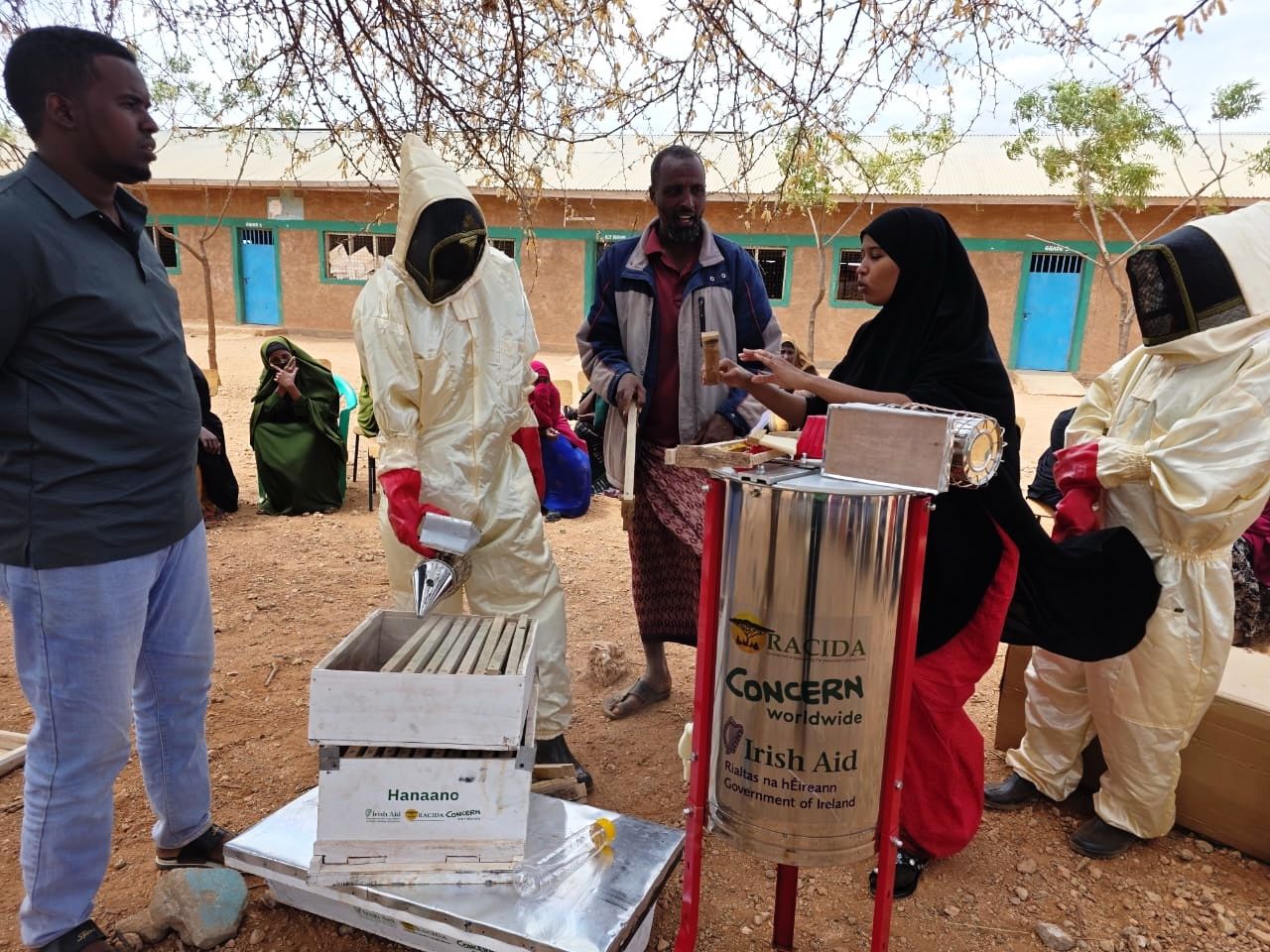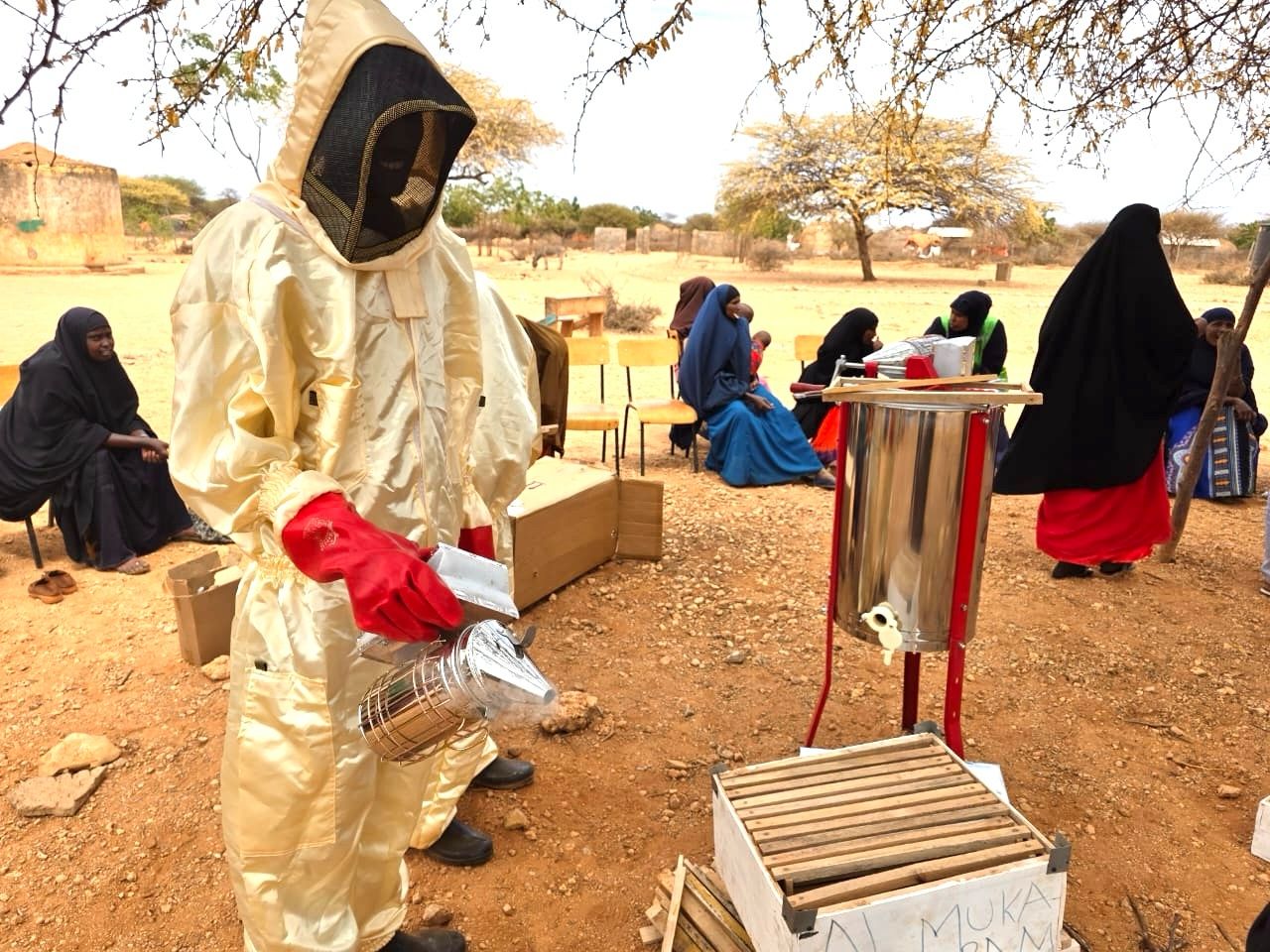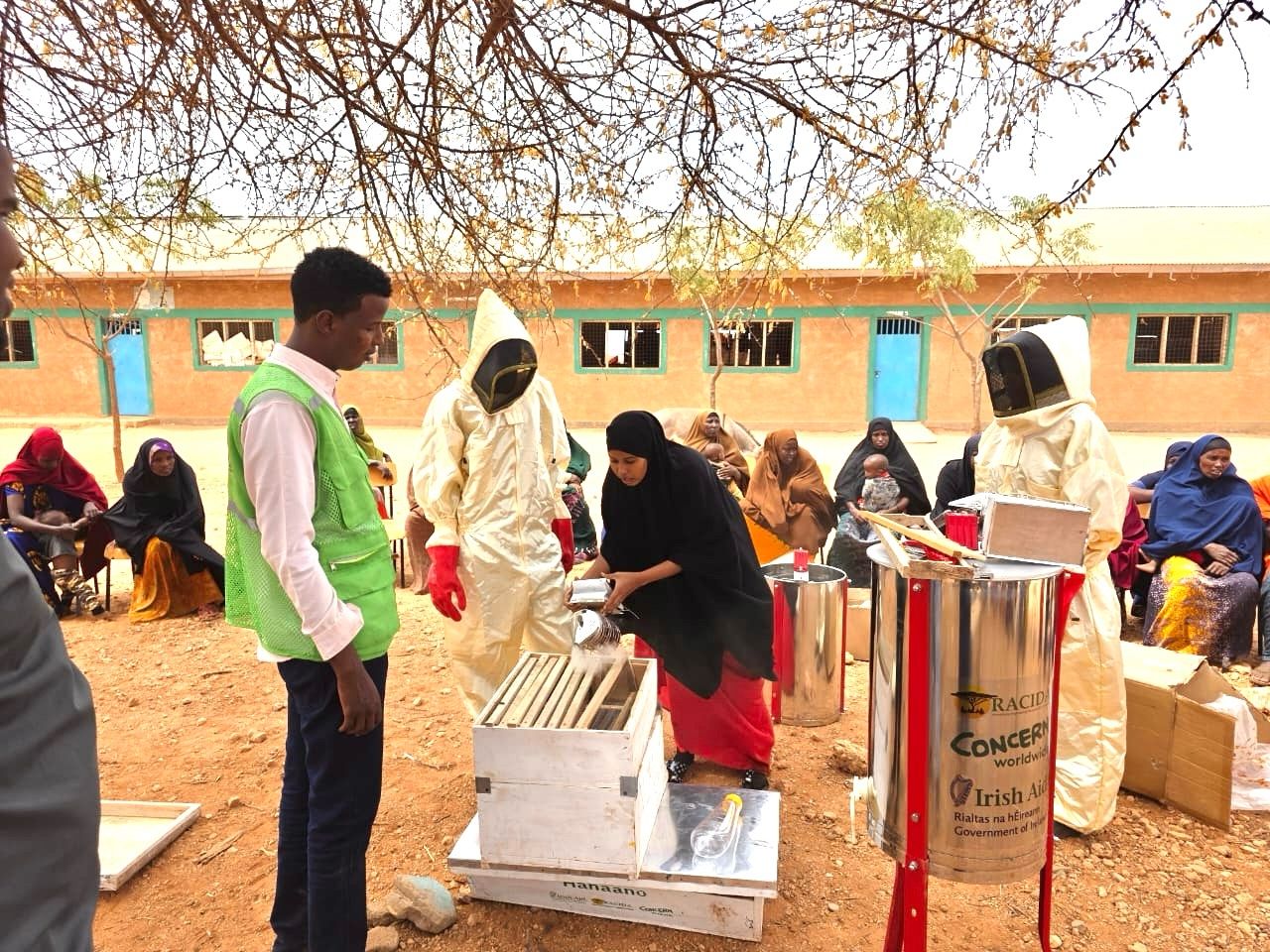The Rural Agency for Community Development and Assistance (RACIDA), in partnership with Concern Worldwide and funded by Irish Aid, has successfully trained 105 Cohort Two beekeeping group members from Banisa and Mandera North sub-counties under the HANAANO Program.
The training, focused on hive management, harvesting, post-harvest handling, processing, and marketing, is equipping pastoralist communities with sustainable beekeeping skills to diversify income sources and enhance food security in a region traditionally reliant on livestock trade.
The HANAANO Program, meaning "prosperity" in Somali, is designed to strengthen pastoralist livelihoods in Mandera County, where communities have historically depended on livestock trade for their economic survival.

However, recurrent droughts, unpredictable rainfall, and market fluctuations have made livestock-based livelihoods increasingly precarious.
By introducing beekeeping as a viable alternative, the program offers pastoralists a sustainable and climate-resilient income stream, leveraging the region’s favourable conditions for apiculture to generate economic opportunities and improve household food security.
The recent training sessions provided hands-on instruction to 105 participants, equipping them with the technical expertise needed to manage beehives effectively, harvest honey safely, and process it for market readiness.
Participants also learned marketing strategies to ensure their products reach local and regional buyers, maximizing profitability.
Beekeeping presents a unique opportunity for Mandera’s pastoralists, who face challenges such as livestock losses due to drought and limited access to markets.
Unlike livestock rearing, which requires significant resources like water and pasture, beekeeping is less resource-intensive and more resilient to the region’s harsh climatic conditions.
Honey and other bee products, such as beeswax, have growing demand in both local and national markets, providing pastoralists with a reliable income source.
Additionally, beekeeping promotes environmental sustainability by supporting pollination, which benefits local ecosystems and agriculture.
The HANAANO Program’s focus on beekeeping aligns with broader efforts to diversify livelihoods in Mandera, reducing dependency on livestock trade, which is often vulnerable to external shocks.

By equipping community members with skills in processing and marketing, the program ensures that pastoralists can access value-added markets, increasing their earnings compared to traditional livestock sales.
For many trainees, the training represents a pathway to economic empowerment and resilience in the face of climate change.
Funded by Irish Aid and implemented in collaboration with Concern Worldwide, the HANAANO Program underscores the power of partnerships in addressing development challenges.
The initiative not only provides technical training but also fosters community-led innovation, encouraging pastoralists to form beekeeping groups that can collectively access resources, share knowledge, and negotiate better market prices.
Participants in Banisa and Mandera North have expressed enthusiasm about the potential of beekeeping to transform their livelihoods.
As the HANAANO Program continues to expand, RACIDA and its partners aim to train more cohorts and scale up beekeeping initiatives across Mandera County.
By diversifying income sources and building resilience, the program is paving the way for a more prosperous and sustainable future for Mandera’s pastoralist communities, proving that beekeeping can be a powerful alternative to traditional livestock trade in Northern Kenya.

